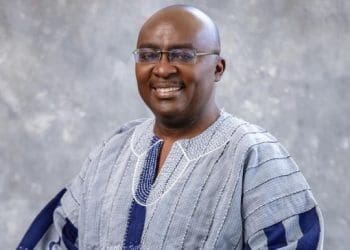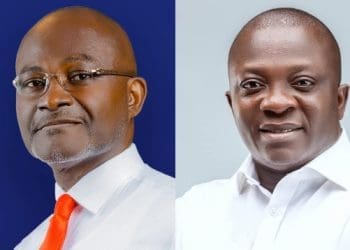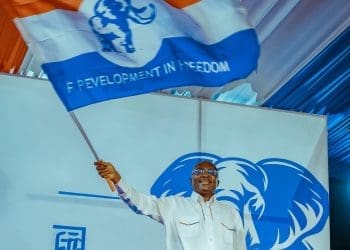The Minister for Energy and Green Transition, John Abdulai Jinapor, has declared that the Power Distribution Services (PDS) concession was “not a bad deal” in concept, but was ultimately destroyed by greed and political interference.
Speaking at the Government Accountability Series in Accra on Wednesday, July 16, 2025, Mr. Jinapor sharply criticised the handling of the PDS-Electricity Company of Ghana (ECG) concession, attributing its collapse to what he called a cabal of “greedy individuals” who manipulated the process for personal gain.
“We are not going to use the PDS approach in bringing in the private sector,” the Minister stated.
“PDS was not a bad approach in terms of private sector involvement. The only bad thing was that a few greedy individuals decided to cannibalise the process and sell the shares among themselves.”
Private sector involvement is not off the table
Jinapor emphasised that the current government remains committed to private sector participation in ECG operations but would pursue it under stricter oversight and transparency.
“If they had started what we are doing now—ensuring value for money, a competitive process, and less political interference—even in its bad form, we saw that the revenue of ECG was increasing.
So, it means that if we do it better, then we can get real results,” he said.
He assured that lessons have been learned and that the new framework being developed would avoid previous pitfalls.
“I have assured you that we would not get involved in the shares of the new private involvement,” he stressed. “We will build a system anchored on transparency, competition, and accountability.”
How the PDS deal was structured and why it failed
The PDS arrangement was introduced under former President Nana Addo Dankwa Akufo-Addo as part of the Millennium Challenge Corporation (MCC) Power Compact II between Ghana and the United States.
The goal was to bring in private sector efficiency to the struggling state-owned Electricity Company of Ghana (ECG).
Signed in March 2019, the 25-year concession agreement awarded operational and financial control of ECG to Power Distribution Services Ghana Limited (PDS).
In return, Ghana was to receive $498 million under the MCC compact, with $190 million earmarked for the second tranche, dependent on progress in implementing reforms.
The MCC made it clear that private sector participation was central to the compact’s goals of improving power reliability, reducing losses, and attracting private capital into Ghana’s energy sector.
But within four months of the PDS takeover, the deal fell apart.
Fake insurance guarantees triggered collapse
In July 2019, the government of Ghana suspended the concession after discovering that PDS had submitted invalid payment securities—a serious breach of contract.
These payment guarantees were intended to be bank-issued letters of credit or demand guarantees from reputable institutions, ensuring that PDS could fulfill its financial obligations under the agreement.
However, PDS, unable to secure bank guarantees, submitted demand guarantees from Al Koot Insurance and Reinsurance, a Qatar-based company.
Investigations revealed that the submitted documents included forged signatures and fake letters. Moreover, Al Koot lacked both the financial capacity and legal authorisation to issue such guarantees.
This revelation prompted the government to cancel the concession outright, which in turn jeopardised the release of the $190 million MCC funding, dealing a severe blow to Ghana’s energy sector reform programme.
Fallout and lost opportunities
The cancellation not only cost Ghana significant investment capital but also cast doubt on the country’s ability to manage large-scale public-private partnerships transparently.
Although PDS briefly ran ECG’s operations, during which revenue collection reportedly improved slightly, the short-lived partnership was marred by public skepticism, questions about due diligence, and concerns over shareholding secrecy.
Stakeholders, including civil society organisations and energy analysts, widely condemned the lack of transparency and the hasty manner in which the deal was executed and later abandoned.
Charting a new path
Now, more than five years since the scandal, Energy Minister John Jinapor says the government is working on a more robust framework to allow responsible private sector participation in ECG.
He said the focus is on avoiding political meddling, ensuring value for money, and securing real sector expertise in any future concessions or partnerships.
While details of the new plan remain under wraps, stakeholders are expected to keep a close eye on its structure—especially with the scars of the PDS debacle still fresh in the minds of many Ghanaians.
Background: The Millennium Challenge Compact II
The PDS arrangement was one of the key projects under the $498 million Ghana Power Compact, signed in 2014, with the Millennium Challenge Corporation (MCC) of the United States.
The compact aimed to modernise Ghana’s electricity sector by reducing technical and commercial losses, improving service quality, and enabling financial recovery.
At the heart of the compact was the belief that private sector participation would help transform ECG into a sustainable and efficient utility.













